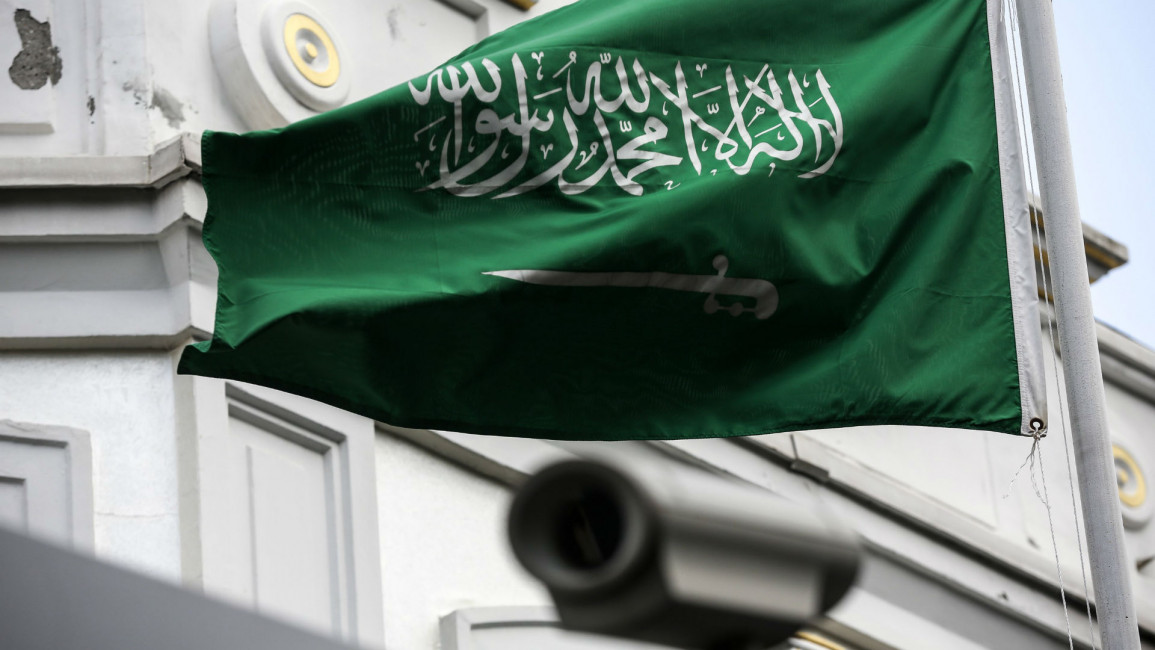Saudi activists take on kingdom’s repression in honour of slain journalist Jamal Khashoggi: Amnesty
Activists and dissenters are pursuing the fight for their inalienable right to freely express themselves, despite the authorities’ continuing crackdown, the rights group said on Wednesday, during an announcement for a new podcast series titled “The Great Saudi Arabia”.
The project, which is led by Saudi activists and backed by Amnesty, tackles a range of rights issues plaguing the Saudi kingdom, with the first episode focusing on the brutal killing of the former Washington Post journalist.
“The podcast will present a powerful platform for Saudi journalists, scholars and activists to counter the state-led propaganda and misinformation campaign. It will engage the Saudi people in a rare and free discussion on issues such as public participation, rule of law, feminism and other issues related to human rights,” said Hala al-Dosari, a Saudi scholar and human rights defender, according to an Amnesty statement.
Read more: Murder in the Saudi consulate: A year after Jamal Khashoggi's killing
The initiative demonstrate the activists’ desire to assure the world that “extreme measures of repression” will do little to prevent them from expressing their views nor shy away from demanding the release of human rights defenders detained by the Saudi state.
The report notes at least 30 prisoners of conscience are behind bars for their pursuit in fighting for freedom of speech, much like Khashoggi did as part of his journalistic career, with many facing between five and 30 years in prison.
Among those currently detained by the Saudi state are Mohammed al-Qahtani, a founding member of the Saudi Civil and Political Rights Association who called for the protection and promotion of human rights and provided legal support to families of detainees and Waleed Abu al-Khair, a lawyer who defended human rights defenders before his imprisonment, as well as a number of other women activists that have rallied for equal rights in the kingdom as well as the right to drive.
Both of the aforementioned detainees were tried and sentenced before the counter-terror court to 10 and 15 years in prison for their peaceful human rights work.
The new initiative was announced October 2, the anniversary of the Khashoggi murder and just days after Saudi Crown Prince Mohammed bin Salman appeared on a CBS interview where he took “full responsibility” for the killing which he said took place under his watch.
A UN rights expert on Monday criticised MbS for trying to create "distance" between himself and Khashoggi’s execution.
Read more: Interview with UN investigator: Justice for Jamal Khashoggi
Agnes Callamard, a United Nations special rapporteur who conducted an investigation into Khashoggi's murder and found "credible evidence" linking the crown prince to the murder and attempted cover up, dismissed that defence as “problematic".
"He is only taking corporate responsibility for the crime, which goes without saying," Callamard told AFP, days ahead of the first anniversary since Khashoggi's death.
She said the interview appeared to mark a concession by Prince Mohammed that "the killing of Mr. Khashoggi was a state killing," and therefore a rejection of Riyadh's previous explanation that responsibility for the brutal murder lay with rogue agents.
Read more: Khashoggi's fiancee Hatice Cengiz: Jamal's murder changed everything. MbS must be punished
But Callamard condemned the prince, known by his initials MbS, for taking "no personal responsibility for the crime".
"He is creating huge distance between himself and the crime," by arguing that he cannot be liable for the conduct of all Saudi government employees.
Callamard told AFP that "for the last 12 months, the Saudi state, their various representatives and [MBS] included have been lying to the international community regarding the nature of the crime. So now we are supposed to take his word that, yes, he has a corporate responsibility but he has no personal responsibility?"
Read more: Jamal Khashoggi's murder: From immunity to impunity
"Not good enough," she said.
Lynn Maalouf, Middle East Research Director at Amnesty International also took aim at the controversial crown prince on Wednesday, describing the television appearance as a mere publicity stunt by the Saudi state.
“Mohamed bin Salman’s taking responsibility for Jamal Khashoggi’s killing will just be yet another failed PR stunt if it is not met with meaningful, concrete and immediate action. This must include an immediate end to the crackdown and the release of all human rights defenders on the one hand; and the prompt and unrestricted access to independent human rights monitors into the country, including to observe and publicly report on the ongoing trial into the case of Jamal Khashoggi’s killing,” said Maalouf.
Amnesty slammed Riyadh’s lack of transparency in the “sham” trial and called on authorities to immediately allow access to independent monitors to avoid “a violation of the right of the family and the wider Saudi public”, both of which need to know what happened to Jamal Khashoggi “under the watch” of Mohamed bin Salman.
Follow us on Twitter: @The_NewArab



